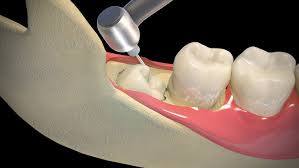How to Identify ARFID Symptoms in Adults and Take Action for Better Health

ARFID symptoms in adults often get overlooked because most people think eating disorders only affect teenagers. Avoidant/Restrictive Food Intake Disorder can persist from childhood or develop later in life, causing health problems and social difficulties.
ARFID differs from other eating disorders because it’s not about weight or body image. Adults with this condition avoid foods due to taste, texture, smell, or appearance issues. Some have eaten the same limited foods since childhood, while others develop food aversions after medical procedures or illness.
Understanding Adult ARFID
Adults with ARFID face unique challenges compared to children. Many have learned to hide their eating difficulties or developed workarounds that mask the severity of their condition. This makes diagnosis difficult and delays treatment.
ARFID in adults symptoms typically fall into several patterns. Some people have been extremely selective eaters since childhood and never expanded their diet. Others develop the condition later due to medical trauma, illness, or negative food experiences. A third group managed mild symptoms as children but find them worsening in adulthood.
The condition seriously impacts work, relationships, and quality of life. Adults often avoid business lunches, dinner parties, or dating because of food restrictions. This isolation frequently leads to depression and anxiety.
Many adults have developed strategies to hide their eating patterns. They might eat before social events, claim food allergies, or make excuses about not being hungry. These tactics may work temporarily but often prevent people from seeking help.
Medical consequences can be severe, including nutritional deficiencies, weight problems, and complications from poor nutrition. These health issues typically worsen without intervention.
Recognizing ARFID in Adults Symptoms
ARFID in adults symptoms present as eating patterns that severely limit food variety and quantity. Unlike normal pickiness, these restrictions cause significant problems with nutrition, weight, or social functioning.
Adults with ARFID typically have an extremely limited list of acceptable foods – often just 10-20 items or fewer. These foods must be prepared exactly the same way each time. Small changes can make previously tolerated foods completely unacceptable.
Texture sensitivity is common. Some adults can only tolerate smooth foods like yogurt, while others require crunchy textures and refuse anything soft. Mixed textures within a single food can be particularly challenging.
Temperature preferences play a major role. Some people can only eat room temperature foods, while others need everything very hot or cold. Different temperatures within the same meal may be impossible.
Strong reactions to food odors often accompany the condition. Adults may feel nauseous or anxious around certain cooking smells, making it difficult to be near food preparation or dine in restaurants.
Many adults have lived with these patterns so long they consider them normal. They may not realize their eating habits differ significantly from others until someone points it out or health problems develop.
Key Warning Signs
Important indicators include:
- Extremely limited food variety with only a handful of acceptable options
- Strong negative reactions to new foods or changes in familiar preparations
- Avoidance of social eating like restaurants, parties, or work events
- Significant weight changes or difficulty maintaining appropriate weight
- Physical symptoms from poor nutrition like fatigue or frequent illness
Health Impact and Medical Risks
The symptoms of ARFID in adults can cause serious health problems that worsen without treatment. Nutritional deficiencies commonly develop when diet variety is severely limited, affecting energy, immune function, and overall health.
Weight maintenance becomes difficult when food intake is restricted. Some adults experience significant weight loss, while others struggle to gain weight despite wanting to. This affects physical strength, bone health, and organ function.
Digestive issues frequently occur. Limited fiber from avoiding fruits and vegetables commonly causes constipation. Some people develop stomach problems from eating identical foods repeatedly.
The emotional toll can be enormous. Adults often feel embarrassed about their eating habits and experience shame when others comment. This leads to social isolation and withdrawal from food-related activities.
Anxiety around mealtimes is common, especially in social situations. Adults may worry extensively about upcoming food events or feel panic when confronted with unfamiliar foods.
Depression can develop from isolation and health problems associated with ARFID. Adults often feel hopeless about their eating difficulties and frustrated by their inability to eat normally.
Relationships suffer when ARFID interferes with normal social activities. Dating becomes difficult, and family gatherings become sources of stress rather than enjoyment.
Iron deficiency frequently develops in adults who avoid meat or iron-rich foods, causing fatigue and concentration problems. Vitamin deficiencies are common when fruits and vegetables are eliminated, affecting immune function and energy levels.
Calcium deficiency becomes concerning for adults avoiding dairy without alternatives, leading to bone weakness. Protein deficiency may occur in those with very restricted diets, affecting muscle mass and healing.
Getting Professional Help
Determining when to seek help for ARFID symptoms in adults can be challenging, especially for people who have lived with these patterns for years. However, certain warning signs indicate professional intervention is necessary.
Significant weight loss or inability to maintain healthy weight requires immediate medical attention. Adults experiencing persistent weakness, fatigue, or clothes becoming loose should consult healthcare providers promptly.
Social isolation due to eating difficulties suggests the condition is seriously affecting quality of life. When adults avoid work functions, family gatherings, or social opportunities because of food restrictions, professional help can provide management strategies.
Finding a qualified psychiatrist in Queens or your local area who understands eating disorders can be an important step in comprehensive treatment.
Physical symptoms like persistent fatigue, dizziness, hair loss, or frequent infections may indicate nutritional deficiencies requiring medical evaluation. These symptoms typically worsen without proper treatment.
Mental health concerns like depression or severe anxiety around food warrant attention from qualified professionals. These emotional symptoms often improve as eating patterns become more flexible.
Primary care physicians can provide initial evaluation and ongoing monitoring, but specialized treatment often requires professionals experienced with eating disorders. This may include dietitians, therapists, or psychiatrists who understand ARFID.
Treatment Team Members
A comprehensive approach typically involves:
- Primary care physician for health monitoring and medical complications
- Registered dietitian specializing in eating disorders for nutrition rehabilitation
- Mental health therapist experienced with ARFID for behavioral interventions
- Psychiatrist if medication is needed for anxiety or depression
- Occupational therapist for addressing sensory issues affecting eating
Treatment and Recovery
Treatment for ARFID in adults typically involves multiple professionals addressing both physical and psychological aspects. The goal is gradual dietary expansion while ensuring adequate nutrition, not forcing consumption of intolerable foods.
- Nutritional rehabilitation often begins with ensuring adequate calories and nutrients from currently acceptable foods. This may involve supplements while working on dietary expansion.
- Gradual food exposure therapy helps adults slowly expand their diet through structured introduction of new foods. This process respects individual sensitivities while building tolerance.
- Cognitive-behavioral therapy can address anxiety and avoidance behaviors surrounding food. Adults learn coping strategies for trying new foods and develop more flexible thinking about eating.
- Sensory-based interventions may benefit adults with texture sensitivities. Occupational therapists can provide techniques for gradually increasing tolerance to different food properties.
- Family or couples therapy might help when ARFID affects relationships. Partners can learn supportive approaches without pressuring or enabling restrictive eating.
Recovery from ARFID in adults is possible, though it requires time and patience. Success is measured by improvements in nutrition, health, social functioning, and quality of life, not just increased food variety.
Recovery timelines vary significantly. Some adults make rapid progress with appropriate treatment, while others require longer support. Finding providers who understand ARFID and provide patient-centered care is crucial.
Adults experiencing ARFID symptoms in adults should know that effective help is available and recovery is possible. While the condition can significantly impact health and quality of life, appropriate treatment can lead to meaningful improvements in eating flexibility and overall well-being.



